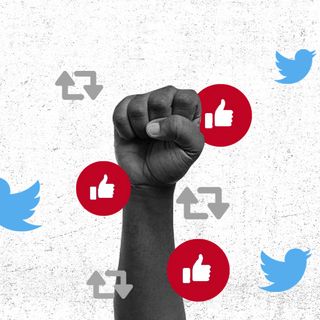Women studying or working in disciplines that value ‘brilliance’ above all else can lead them to doubt their abilities, according to a new study. It highlights how societal notions of which is sex is “brighter” can actually impact how women perceive themselves in their careers.
Published in the Journal of Educational Psychology, the study surveyed close to 5000 STEM (science, technology, engineering, and math) and humanities students and faculty members across nine universities in the U.S. It found that women in fields that considered brilliance a prerequisite for success were more likely to report “feeling like frauds” than their male peers.
In India, too, research has shown that even though girls consistently outperform boys in board exams across the country, women participate less in interactive college classes, compared to their male counterparts due to a fear of peer judgment stemming from stereotypes like the gender-brilliance bias.
Researchers of the present study expressed concerns about the feeling of not being brilliant enough “discourag[ing] participation among members of groups that are currently stereotyped as not having this sort of brilliance.”
However, Ebony McGee, an associate professor of diversity and STEM education at Vanderbilt University, who was not involved with this study, believes that it may be time to move away from describing women’s feelings of self-doubt as “impostor syndrome” in the same way society should stop associating the trait of ‘brilliance’ with men over women. According to McGee, “people always want to say that everybody gets impostor syndrome and it’s normal, but it’s not normal when you are positioned as an impostor. Often, this is how you are perceived — not how you’re perceiving yourself — and you internalize that.”
Given that research has begun deconstructing and debunking the homogeneous notion of impostor syndrome, what McGee, perhaps, intends is to move away from focusing on its manifestation in this context, to target the inherent gender bias that devalues women, leading them to doubt their own abilities.
Related on The Swaddle:
Despite Education Gains, STEM Women in India Still Face Unequal Field
A 2018 study had found that people were almost 40% less likely to refer women for a job if they were led to believe it required high-level intellectual abilities. Just this year, a report showed that in Nature, a leading international scientific journal, 69% of the direct “expert” quotes were from male scientists. And it’s not just scientific publications, research suggests that most of the quotes carried by media, too, are from men. This suggests the persistence of a clear gender bias in society.
“We have written so many female geniuses out of history, they just don’t come to mind as easily. The result is when ‘brilliance’ is considered a requirement for a job, what is really meant is ‘a penis.’ We just don’t see women as naturally brilliant,” Caroline Criado Perez wrote in her book titled Invisible Women: Exposing Data Bias In A World Designed For Men.
Doing so “reinforces a general impression that men are the experts worth listening to, and women’s roles, if anything, are just to assist men in their important work,” Amanda Taub, a former human rights lawyer, wrote in Vox in 2016.
“In our current cultural climate, where women are, stereotypically, seen as less likely to possess special intellectual gifts, emphasizing that those gifts are required for success is going to have a differential effect on men and women,” Andrei Cimpian, a psychologist at the University of Illinois, Urbana-Champaign, had said in 2015.
To ensure that women don’t feel inadequate, it is, perhaps, time to address the systemic biases that foster these feelings of inadequacy.
“A lot of recommendations for how to manage impostor feelings focus on what the individual can do — like, ‘just accept your own success’ or maybe ‘articulate how you’re feeling to a mentor or a colleague,’” Melis Muradoglu, the lead author of this study, who is a psychology researcher at New York University, said in a statement. The advice is “well-intentioned and sometimes helpful, but the responsibility really should be on the workplace to create welcoming environments for us,” she added.




